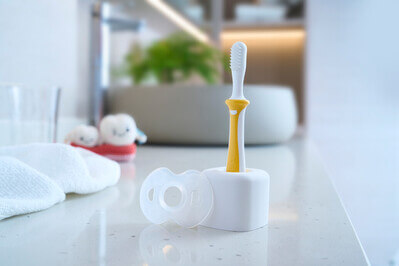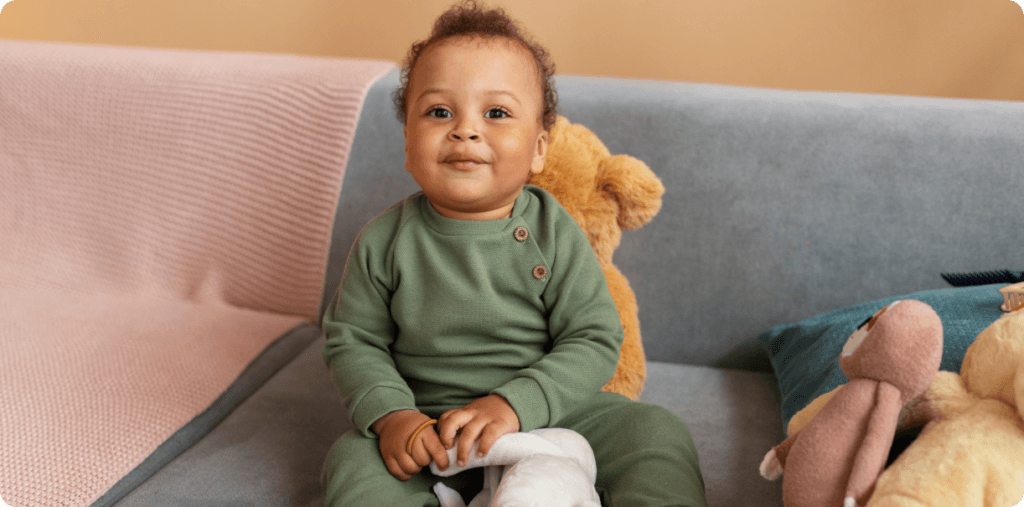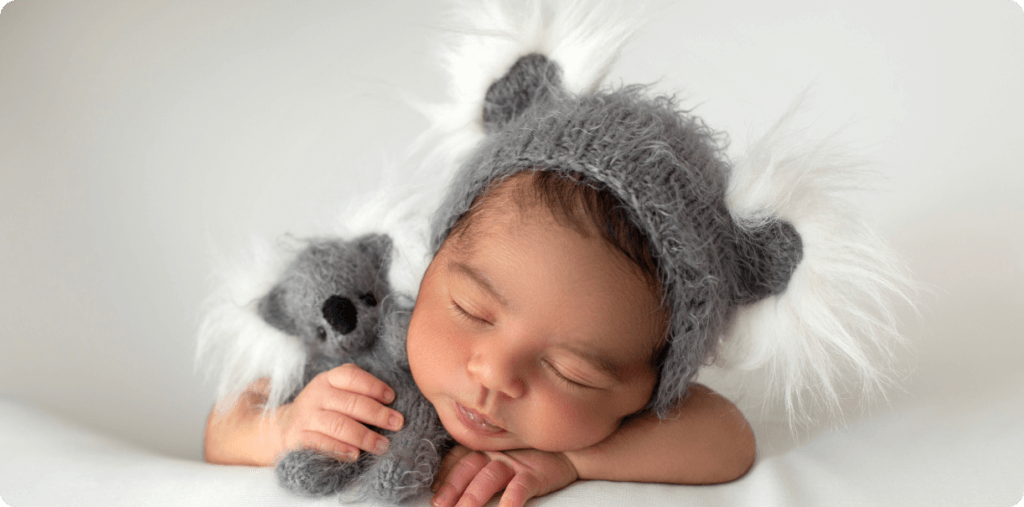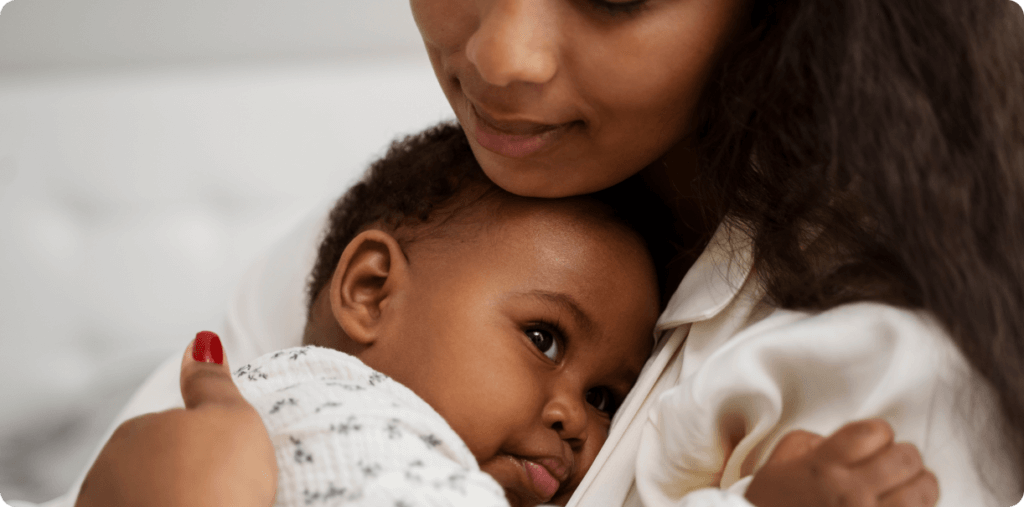
Seeing that first tooth gleaming through a baby’s gummy smile is an endearing sight. As cute as they are, a lack of oral care right from the time the first tooth erupts can also put your baby’s teeth at risk of decay and caries.
It is a popular misconception that baby teeth are not really important since they will fall out eventually. Baby teeth act as the placeholders for the permanent teeth that come out in later years. They affect the baby’s chewing ability, way of speaking and their smiles. Good baby oral care will prevent baby bottle tooth decay. If a baby tooth falls off early due to decay or some other reason, other teeth will drift into that vacated space causing permanent teeth to misalign as they come out.
Oral care for newborn babies was unheard of in earlier times but the truth is that baby oral hygiene starts with infant mouth care when they do not even have any teeth.
How can we prevent tooth decay when the infant does not have any teeth? Even toothless infants need to have their mouth cleaned of breast milk residue. You can use a baby finger brush or a baby toothbrush to gently clean the inside of the baby’s mouth and to massage the gums which may be sore while teething. The soft elastomer rubber head of PIGEON’s infant toothbrush is gentle on the gums while being great fun for the baby to brush with. While teething, babies tend to bite anything and everything including things lying on the floor. Good baby teethers can help babies to control the force of their bite and maintain infant oral health.
At around 6 months of age, the baby starts teething and the first tooth makes an appearance. Some babies get their first tooth as early as at 3 months and some take up to 18 months so there is no fixed timing to meet the milestone. Since part of the baby’s mouth would have teeth (usually in the front) and part of it would still be just gums, it is important to cater to both. PIGEON’s stage 2 toothbrush is designed with super soft and fine bristles on one side and the soft elastomer rubber head on the back side in order to clean the mouth thoroughly. As the baby would have started on solids at this stage, it is important to check his / her diet as certain foods high in sugar and acids could weaken the tooth enamel and cause cavities. It is also recommended that the baby should have his / her first dental visit by age 1 where the pediatric dentist can assess the growth of the baby’s teeth.
By the time all of the baby’s teeth have sprouted, it is time to switch to a real toothbrush. Ensure that the toothbrush has soft bristles with rounded tips and the brush head is not too big so that it reaches into the corners of the baby’s little mouth. PIGEON’s stage 3 toothbrush for babies has extra soft bristles and a tiny head that can help your baby to easily clean his / her entire mouth, including the tongue. It comes with an easy grip that is comfortable for little hands to hold.
In addition to using the right toothbrush and baby mouthwash, there are a few things that parents need to keep in mind about their infant’s oral care.
- Teach the baby how to correctly brush their teeth. Even when the babies start to brush on their own, re-brush the teeth for them till they are about 7-8 years of age as they do not have the manual dexterity to clean effectively.
- Brushing twice a day is the best way to prevent tooth decay. Remind them to floss after brushing.
- Be a good role model to your baby. Kids like to imitate those around them so let them see you demonstrate good oral health habits by brushing together.
- Avoid ‘baby bottle syndrome’ i.e., do not put a baby down for a nap with a bottle of milk or sugary liquids.



